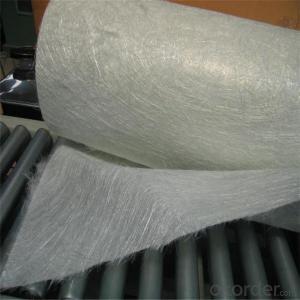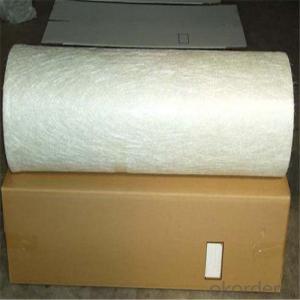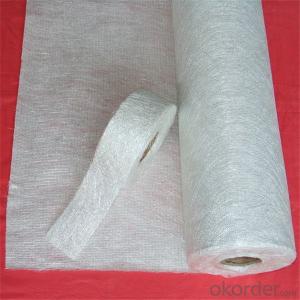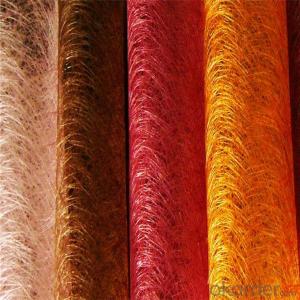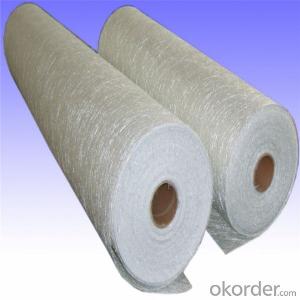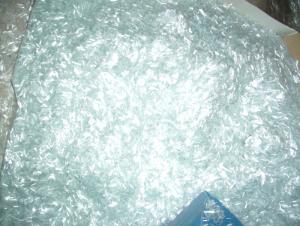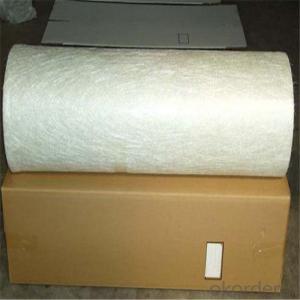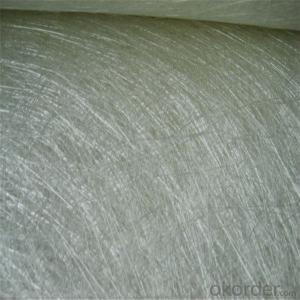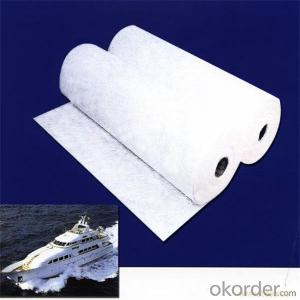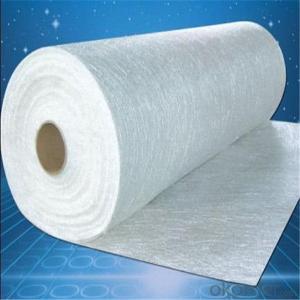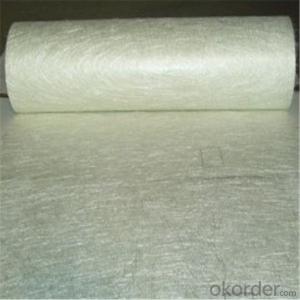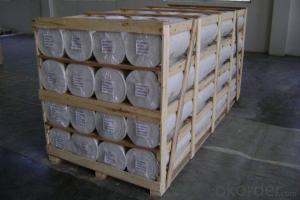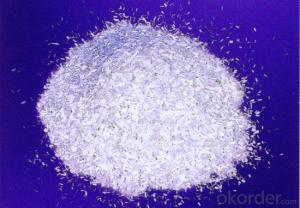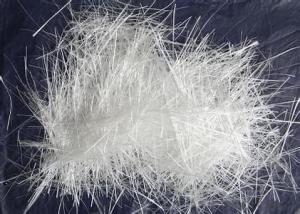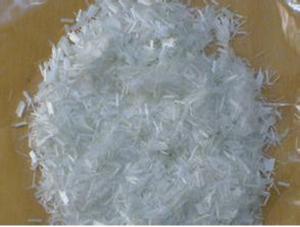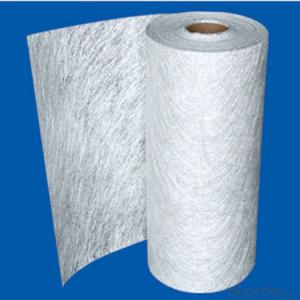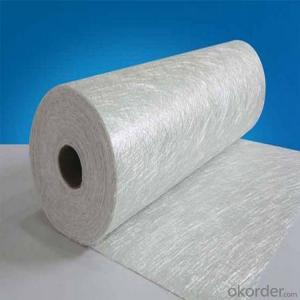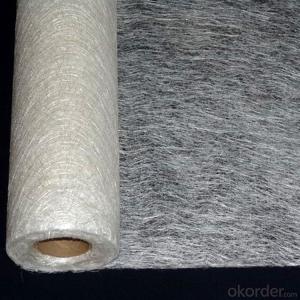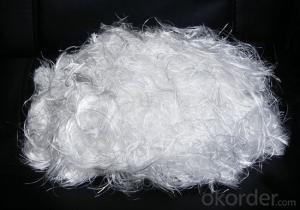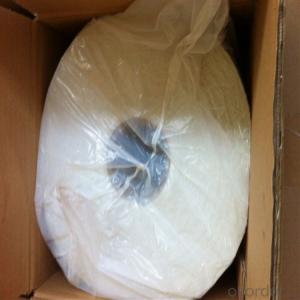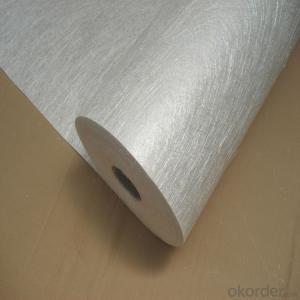Fiberglass Powder Chopped Stand Mats
- Loading Port:
- Tianjin
- Payment Terms:
- TT OR LC
- Min Order Qty:
- 100 m.t.
- Supply Capability:
- 100000 m.t./month
OKorder Service Pledge
OKorder Financial Service
You Might Also Like
Quick Details
| Technique: | Chopped Strand Fiberglass Mat (CSM) | Dimensions: | 225g/m2-900g/m2 | Fiberglass Type: | E-Glass |
| Place of Origin: | China (Mainland) | Brand Name: | cnbm | Model Number: | 300G-900G |
| moisture: | ≤0.2% | combustion content: | 2.1-6.3% | binder type: | emulsion or powder |
| width: | 1040,1270,2080mm |
Packaging & Delivery
| Packaging Details: | plastic bag then carton then pallet |
| Delivery Detail: | 15 days after payment |
Advantage
1. Chopped strand mat is made up from fiberglass chopped strands bonded with powder binder or emulsion binder
2. Wet out faster and easy of handling
3. Good choppability
4.thickness uniformity
Apllication
fiberglass chopped strand mat
It is used for processing and manufacturing FRP products with getting through hand lay up process, filament winding process and press molding. Typical products is including bathroom accessories, pipe, building material, automobile, furniture, vessel, cooling towers and other FRP products
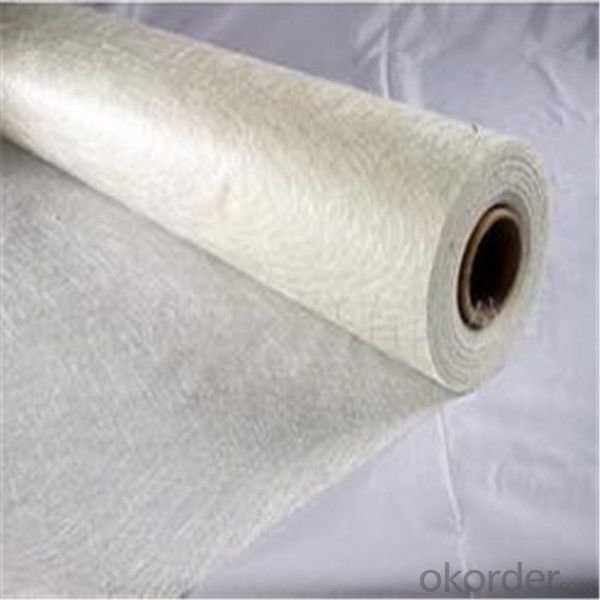
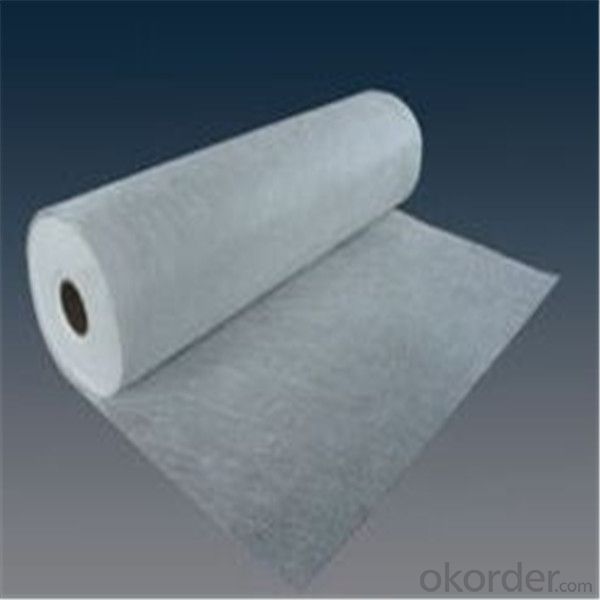
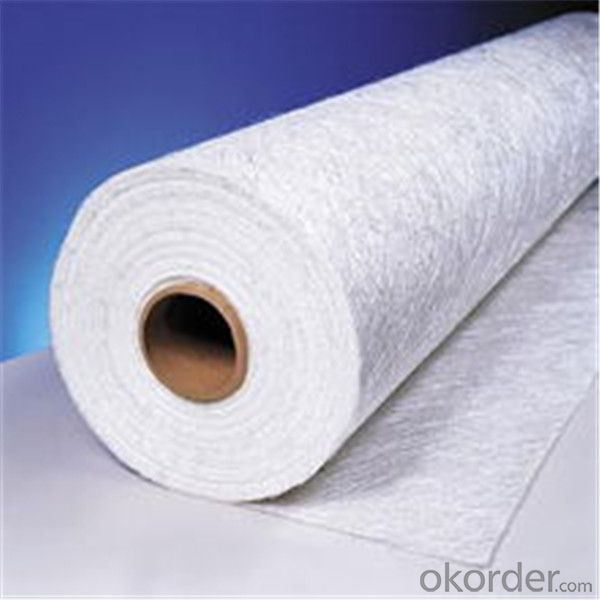
- Q:Is fiberglass chopped strand suitable for construction reinforcement applications?
- Construction reinforcement applications can benefit from the use of fiberglass chopped strand. This material is created by chopping fiberglass strands into smaller pieces, usually around 1 to 3 inches in length. These chopped strands are then mixed with a binder and molded into mats or sheets. The advantages of fiberglass chopped strand make it an excellent option for construction reinforcement. Firstly, fiberglass is known for its strength and durability, which enhances the overall strength of structures. It possesses high tensile strength and exceptional resistance to chemicals, corrosion, and weathering, allowing for its use in various construction applications. What's more, fiberglass chopped strand is lightweight, making it easier to handle and install compared to traditional reinforcement materials like steel. This can result in faster construction times and reduced labor costs. Moreover, fiberglass chopped strand is non-conductive and non-magnetic, making it ideal for situations where electrical conductivity or magnetic interference must be avoided. It is also non-combustible, providing an added level of safety in construction projects. In conclusion, fiberglass chopped strand is a versatile and dependable material for construction reinforcement. Its combination of strength, durability, lightweight nature, and non-conductive properties make it suitable for a wide range of construction projects.
- Q:How does the stiffness of the chopped strand affect its performance?
- The stiffness of the chopped strand directly affects its performance as it plays a vital role in determining the strength, durability, and overall effectiveness of the product. A stiffer chopped strand typically results in a higher tensile strength, improved dimensional stability, and enhanced resistance to deformation or breakage. This stiffness also contributes to better mechanical properties and allows for more effective reinforcement in composite materials. Consequently, the performance of the chopped strand is significantly influenced by its stiffness, making it a crucial factor to consider in various applications.
- Q:Is fiberglass chopped strand compatible with different repair techniques?
- Different repair techniques are compatible with fiberglass chopped strand. It finds application in a wide range of fields, including automotive repairs, boat repairs, and the construction industry. By mixing it with resin, a strong and durable composite material can be created, which is then suitable for repairing cracks, holes, and other damages. Additionally, it can be combined with other repair techniques, like layering it with fiberglass cloth or matting, to enhance its strength. All in all, fiberglass chopped strand is a versatile and compatible material that effectively serves various repair techniques.
- Q:Is fiberglass chopped strand suitable for marine structural applications?
- Yes, fiberglass chopped strand is suitable for marine structural applications. It is a durable and corrosion-resistant material that can withstand the harsh marine environment, making it ideal for use in boat hulls, decks, and other structural components. Its high strength-to-weight ratio and excellent impact resistance also make it a popular choice in the marine industry.
- Q:What are the advantages of using fiberglass chopped strand?
- There are several advantages of using fiberglass chopped strand. Firstly, it offers excellent strength and stiffness properties, making it a popular choice for reinforcing materials in various industries such as automotive, construction, and aerospace. Secondly, it has a high resistance to corrosion, chemicals, and moisture, making it highly durable and long-lasting. Additionally, fiberglass chopped strand is lightweight, making it easier to handle and transport. It also offers good thermal and electrical insulation properties. Furthermore, it has excellent dimensional stability and can be easily molded into complex shapes. Overall, the use of fiberglass chopped strand provides a cost-effective solution with numerous benefits in terms of strength, durability, and versatility.
- Q:Can fiberglass chopped strand be used in the production of insulation blankets?
- Indeed, the utilization of fiberglass chopped strand is applicable in the manufacturing of insulation blankets. This lightweight and adaptable material possesses exceptional thermal insulation characteristics. It can be effortlessly manipulated and shaped into insulation blankets, which find extensive use in diverse industries for thermal and acoustic insulation objectives. The incorporation of chopped strands effectively augments the overall insulation efficacy of the blankets, forming a compact and consistent layer of insulation material. Moreover, fiberglass chopped strand exhibits resistance against moisture, chemicals, and fire, thus rendering it an optimal selection for insulation applications.
- Q:What are the torsional strength properties of fiberglass chopped strand?
- The torsional strength properties of fiberglass chopped strand are influenced by various factors. These factors include the length and alignment of the fibers, the type of resin utilized, and the manufacturing process. Typically, fiberglass chopped strand exhibits satisfactory torsional strength due to the inherent strength of glass fibers. The elongated and slender glass fibers found in chopped strand exhibit exceptional resistance against torsional forces. When these fibers are arranged parallelly or randomly, they effectively distribute and withstand torsional loads. Additionally, the length of the fibers plays a role in determining torsional strength, as longer fibers generally provide better resistance against twisting forces. The type of resin employed during the manufacturing process also impacts the torsional strength properties. Fiberglass chopped strand is commonly combined with a resin matrix, such as epoxy or polyester, to create a composite material. The choice of resin can affect the overall torsional strength since different resins possess varying degrees of stiffness and flexibility. Furthermore, the manufacturing process plays a crucial role in the torsional strength of fiberglass chopped strand. Proper fiber alignment, resin impregnation, and curing techniques are essential for achieving optimal torsional strength properties. If the fibers are unevenly distributed or the resin is inadequately impregnated, the torsional strength may be compromised. In conclusion, fiberglass chopped strand generally exhibits good torsional strength due to the inherent strength of glass fibers. The length and alignment of the fibers, the type of resin used, and the manufacturing process all contribute to the overall torsional strength properties of the material.
- Q:Does fiberglass chopped strand improve the fatigue resistance of composite materials?
- Fiberglass chopped strand has the ability to enhance the fatigue resistance of composite materials. Renowned for its strength and stiffness, fiberglass reinforces the material and improves its capacity to withstand cyclic loading and fatigue when included as chopped strands in a composite matrix. The random orientation of the chopped strands aids in distributing stress across the composite, thereby reducing the likelihood of crack initiation and propagation. The high tensile strength of fiberglass chopped strand also assists in preventing crack propagation, resulting in an increased fatigue life for the composite material. This reinforcement effect holds particular significance in industries such as aerospace, automotive, and sporting goods, where the composite material is exposed to repetitive loading or vibrations. Moreover, the exceptional properties of fiberglass, such as its moisture and chemical resistance, further contribute to the augmented fatigue resistance of the composite material. By preventing moisture penetration and chemical attacks, fiberglass chopped strand helps maintain the structural integrity of the composite, thereby extending its fatigue life. It is important to note that the specific design and composition of the composite material, including the type and quantity of fiberglass chopped strand used, as well as the matrix material, can influence the extent of improvement in fatigue resistance. Therefore, careful consideration and testing should be undertaken to optimize the composite formulation for the desired fatigue performance.
- Q:What are the typical thermal expansion characteristics of chopped strand composites?
- The typical thermal expansion characteristics of chopped strand composites are that they exhibit a low coefficient of thermal expansion. This means that they expand very minimally when exposed to heat and contract when cooled, making them suitable for applications where dimensional stability is important.
- Q:How does the fiber dispersion uniformity of fiberglass chopped strand affect the quality of composites?
- The fiber dispersion uniformity of fiberglass chopped strand plays a crucial role in determining the quality of composites. If the fiber dispersion is not uniform, it can result in uneven distribution of fibers within the composite material. This can lead to weak spots and reduced mechanical properties, such as lower strength and stiffness. Additionally, non-uniform fiber dispersion can cause resin-rich or resin-starved areas, affecting the overall homogeneity and integrity of the composite. Therefore, achieving a high level of fiber dispersion uniformity is essential for producing high-quality composites with consistent and reliable performance.
1. Manufacturer Overview |
|
|---|---|
| Location | |
| Year Established | |
| Annual Output Value | |
| Main Markets | |
| Company Certifications | |
2. Manufacturer Certificates |
|
|---|---|
| a) Certification Name | |
| Range | |
| Reference | |
| Validity Period | |
3. Manufacturer Capability |
|
|---|---|
| a)Trade Capacity | |
| Nearest Port | |
| Export Percentage | |
| No.of Employees in Trade Department | |
| Language Spoken: | |
| b)Factory Information | |
| Factory Size: | |
| No. of Production Lines | |
| Contract Manufacturing | |
| Product Price Range | |
Send your message to us
Fiberglass Powder Chopped Stand Mats
- Loading Port:
- Tianjin
- Payment Terms:
- TT OR LC
- Min Order Qty:
- 100 m.t.
- Supply Capability:
- 100000 m.t./month
OKorder Service Pledge
OKorder Financial Service
Similar products
New products
Hot products
Related keywords
